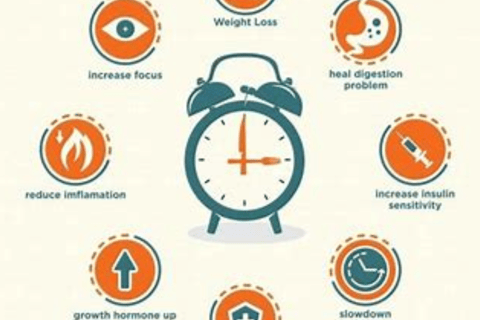
Golden Solution : recurrent respiratory infection
Discover a golden solution to combat recurrent respiratory infections, recurring heart burn, and clean your lungs from bacteria, viruses, allergies, and fungi. "recurrent respiratory infection"
RESPIRATORY INFECTION
Dr Hassan Al Warraqi
6/7/2024

Golden Solution for recurrent respiratory infection (RIs)
Recurrent upper respiratory infections (URIs), also known as colds, can be frustrating and disrupt your daily life.
Over-the-counter medications: antibiotics , antihistamine , pain relievers, decongestants, or cough suppressants may be useless
While there's no one-size-fits-all "golden solution" to prevent them completely,
there are steps you can take to boost your immune system and make yourself less susceptible.
Recurrent upper respiratory infections (URIs) in the form of pneumonia bronchitis sinusitis rhinitis tonsillitis allergic rhinitis
migraines Corona virus & its mutations and cough and more there is some reports said Recurrent upper respiratory infections (URIs) seen post vaccination against covid and post covid or its mutation
role of honey The title "The Golden Solution" creates the impression of a cure-all for recurrent upper respiratory infections (URIs).
Can Honey Help Honey's Potential Benefits:
Limited research: While some studies suggest honey might help with cough relief, the evidence for preventing or shortening URIs is less clear.
why ???!! Not suitable for everyone:
Children under 1 year old should not consume honey due to the risk of infant botulism.
evidence People with diabetes or allergies should consult their doctor before using honey.
Over-the-counter medications: antibiotics , antihistamine , pain relievers, decongestants, or cough suppressants to manage symptoms. coast , disease status , effectiveness
try it Fasting - intermittent or islamic either intermittent (16-18 hours) or islamic from fajer prayer to mageb prayer May support
immune function:
Some studies suggest fasting can positively impact the immune system, potentially making you less susceptible to infections.
Reduce inflammation: Fasting may help reduce inflammation in the body, which can contribute to some URI symptoms.
Research is ongoing (fake): More research is needed to confirm the effectiveness of fasting for preventing URIs.
Not suitable for everyone: People with certain health conditions or pregnant/breast feeding women and childrens should consult their doctor before trying fasting.
stem cell and autophagy benefit of is well know Honey reduces inflammation Anti-inflammatory:
Antibacterial: Antioxidant: Antivirus: Antifungal:
Improving immune system functions: I challenge the world, based on the method of Dr. Hassan Al-Waraqi for Recurrent respiratory infections (RIs)
Rinse to cleanse the mouth and nose, treat headaches, migraines and sinuses
#repeat_at_your_comfort_no_side_effects #honey_bees +
Fasting &outhwash and nose cleansing with honey Treating Recurrent upper respiratory infections (URIs) Gargle and rinse your mouth and nose with honey at least 5 times daily
best_treatment_for_headaches_of_all_kinds why not receiving analgesics
Unpalatability of analgesics
Not being able to take it regularly
The presence of diseases that prevent taking it,
such as kidney failure or peptic ulcer disease
There is a financial barrier that prevents the purchase
The presence of an obstacle such as wars and natural disasters recurrence of symptoms with recurrent treating
The five stages are:
1- Cleansing the mouth, teeth, gums, roof of the throat and tongue
2- Cleansing the nose and each nostril separately
3 - What is around the nose and mouth, including the lips and skin
4- Cleanse the skin of the sinuses, eyes and nose
5 - Gargling and gargling with honey to protect against bacteria and viruses, including the Corona virus and its mutations, influenza and its types, allergies, and fungi.
Repeat this as much as possible, as there are no obstacles to that but the standard is 5 times daily
To treat bacteria, viruses, and fungi, and treat nasal allergies and inflammation, whatever the cause
If you suffer from diabetes, be careful, your blood sugar may be slightly higher spit it after gargling treating severe gum
keywords
infections, recurring heart burn, a way to clean the lungs, for bacteria, viruses, allergies, and fungi,kidney failure ,or peptic ulcer disease ,wars , natural disasters ,recurrence of symptoms,
Recurrent Respiratory Infections (RIs)
Health professionals and researchers concerned with recurrent respiratory infections.
This document provides a detailed summary of the most important topics, ideas, and facts mentioned in a collection of sources about recurrent respiratory infections (RIs) in children and adults.
It covers the definition of recurrent respiratory infections, their causes, diagnosis, and various methods of prevention and treatment, including general measures, traditional medical treatments, and the use of immunomodulating agents, as well as highlighting the Global Initiative for Chronic Obstructive Lung Disease (GOLD) and the importance of awareness of the health and economic burden of recurrent respiratory infections.
Definition and Burden of Recurrent Respiratory Infections (RIs)
Recurrent respiratory infections are a common health problem, especially in children, and represent a major reason for doctor visits and hospital admissions.
There is no unified definition of recurrent respiratory infections, but they are generally defined by the frequent occurrence of upper or lower respiratory tract infections at a higher rate than usual.
For example, in the case of otitis media, recurrence is considered to be three infections within 6 months or four within 12 months.
Recurrent rhinitis is defined by more than five episodes per year, and pharyngitis or tonsillitis by more than three episodes within 12 months.
Statistics indicate that about 6% of children under the age of 6 suffer from recurrent respiratory infections, and this percentage may reach 25% in children under one year old in developed countries.
Recurrent respiratory infections have a significant impact on the quality of life of patients and their families, leading to increased healthcare costs and more days of absence from school or work.
Causes and Risk Factors for Recurrent Respiratory Infections
Viral factors are usually the main cause of primary respiratory infections, while bacterial factors may play a role in recurrent episodes.
Environmental factors play an important role in increasing the risk of recurrent respiratory infections, such as passive smoking, indoor and outdoor air pollution, lack of breastfeeding, and early exposure in nurseries.
In most cases, children with recurrent respiratory infections do not have serious immune problems, but they may have a temporary weakness in their immune system due to incomplete development.
It is important to distinguish between children who experience a normal recurrence of infections due to increased environmental exposure and children who suffer from underlying conditions such as immunodeficiency or congenital malformations of the respiratory system.
Diagnosis and Evaluation
The evaluation of children with recurrent respiratory infections requires careful attention to medical history and physical examination.
More serious causes of recurrent infections should be ruled out, such as primary immune diseases, cystic fibrosis, congenital malformations of the respiratory system, and gastroesophageal reflux.
Using the acronym "SPUR" (Severe, Persistent, Unusual, Recurrent) may help doctors guide investigations to detect underlying causes.
In most cases, recurrent respiratory infections in children are mild and respond to symptomatic treatment and empirical antibiotics.
Prevention of Recurrent Respiratory Infections
Boosting the immune system is essential for preventing recurrent respiratory infections through proper nutrition, good sleep, and exercise.
Good personal hygiene, avoiding contact with sick people, and good home ventilation play an important role in reducing the spread of infection.
Vaccinations against influenza and pneumococcus can help prevent some types of respiratory infections.
The importance of breastfeeding is emphasized for its role in boosting infant immunity.
Medical Treatment for Recurrent Respiratory Infections
Treatment depends on the type of infection (viral or bacterial) and should be under the supervision of a doctor.
Antibiotics and antivirals are used as needed.
The doctor may recommend bronchodilators to facilitate breathing.
Good management of accompanying chronic diseases such as asthma and diabetes reduces the risk of respiratory infections.
Routine use of antibiotics for prevention or treatment is inappropriate due to the predominantly viral nature of recurrent respiratory infections and the risk of developing antibiotic resistance.
Natural Remedies and Lifestyle Modifications
Some natural remedies such as honey and steam inhalation may help relieve symptoms.
The importance of consulting a doctor before using honey for children under one year of age is noted.
Intermittent fasting or Islamic fasting is suggested as a potential way to support immune function and reduce inflammation, but more research is needed and a doctor should be consulted before trying it, especially for those with certain health conditions.
It is suggested to use honey mouth and nose wash as a way to cleanse the mouth and nose and treat headaches, migraines, and sinusitis, with this being repeated at least five times daily.
Immunomodulating Agents
There is a growing interest in using immunomodulating agents to prevent recurrent respiratory infections.
These agents include bacterial lysates (such as OM-85), biologically active polysaccharides (such as glucan), systemic enzyme therapy, isoprinosine, transfer factors, thymic hormones, vitamins and minerals, probiotics and prebiotics, ginseng, astragalus, and others.
Bacterial Lysates (OM-85)
It is considered one of the most studied immunomodulating agents and has shown effectiveness and safety in preventing recurrent respiratory infections in adults and children. It works by stimulating innate and adaptive immunity.
It is noted that its use with the influenza vaccine may be effective and safe for improving prevention strategies.
Biologically Active Polysaccharides (Glucan)
They have multiple immunomodulatory effects, including activating immune cells and increasing cytokine production.
Some studies have shown their effectiveness in reducing the frequency of upper and lower respiratory tract infections in children.
Systemic Enzyme Therapy
It is believed to help modulate immune functions and reduce inflammation, and some studies have shown its effectiveness in reducing the frequency of respiratory infections and reducing the need for antibiotics.
Vitamins and Minerals
They are essential for normal immune system function, but their effectiveness in routine prevention of respiratory infections in healthy individuals is still under investigation.
Probiotics and Prebiotics
They may help promote gut health and modulate immunity, but the evidence for their effectiveness in reducing the frequency of respiratory infections is inconsistent.
Global Initiative for Chronic Obstructive Lung Disease (GOLD)
The GOLD initiative aims to standardize international efforts in the management of COPD and increase awareness that it is a growing health problem.
The initiative encourages the implementation of effective strategies for prevention, diagnosis, and management, and emphasizes the importance of renewing research initiatives.
The 2021 GOLD principles refer to studies on the use of immunomodulating agents such as OM-85 in the management of COPD to reduce the number and severity of exacerbations.
Education and Follow-Up
When recurrent respiratory infections are diagnosed, parents or caregivers should be reassured about the benign and temporary nature of this condition.
The importance of meticulous environmental prevention and lifestyle changes is emphasized.
Prophylactic antibiotic treatment is not recommended.
In specific cases, adenoidectomy and tonsillectomy may be recommended according to approved guidelines.
Conclusion
Recurrent respiratory infections are a common health problem with a significant economic and social burden.
Their management requires a comprehensive approach that includes prevention, appropriate treatment of acute cases, and identification and treatment of any underlying conditions.
There is a growing interest in the role of immunomodulating agents, especially OM-85, in preventing recurrent respiratory infections and reducing the need for antibiotics.
However, more awareness and adoption of these strategies in daily clinical practice are still needed.
Frequently Asked Questions About Recurrent Respiratory Infections (RIs) FAQS
What are Recurrent Respiratory Infections (RIs) and how common are they, especially among children?
Recurrent Respiratory Infections (RIs) are a series of infections that affect the respiratory system repeatedly.
They are very common, especially among children.
Estimates indicate that about 6% of children under the age of six experience recurrent respiratory infections.
In developed countries, the rate may reach 25% among children under one year old and 18% among children aged 1 to 4 years.
These infections are a major reason for doctor visits and hospital admissions for children and can lead to significant complications.
What are the main causes of Recurrent
Respiratory Infections (RIs) in children, and do they always indicate a serious health problem?
The main causes of recurrent respiratory infections in children are often related to environmental factors such as early contact with other children in nurseries and schools, as well as the incomplete maturation of the immune system.
Viral factors are often the main cause. In most cases, recurrent respiratory infections do not indicate a serious health problem, but rather are considered part of the immune system's development and acquisition of experience in fighting pathogens.
However, it is important to distinguish between children who simply have increased exposure to infectious agents and children who have underlying medical conditions such as immunodeficiency or respiratory malformations.
What preventive and therapeutic measures can be taken to reduce the frequency of Recurrent Respiratory Infections (RIs)?
Preventive and therapeutic measures to reduce the frequency of respiratory infections include:
Strengthening the immune system: Through proper nutrition rich in vitamins and minerals (such as vitamin C, D, and zinc), getting enough sleep, and exercising regularly.
Preventing infection: Paying attention to personal hygiene (washing hands regularly), avoiding contact with sick people and crowded places, and ensuring good ventilation of the home and workplace.
Medical treatment: Using antibiotics and antivirals under the supervision of a doctor according to the type of infection, using bronchodilators if recommended by the doctor, and getting recommended vaccinations such as the flu shot and pneumococcal vaccine.
Managing chronic diseases: Regularly following up on the treatment of chronic diseases to ensure they are controlled and reduce the risk of respiratory infections.
Natural remedies: Such as using honey to relieve sore throats and steam inhalation to relieve nasal and chest congestion.
What is the role of cleaning the mouth and nose with honey and fasting in preventing Recurrent Respiratory Infections (RIs)?
Some sources indicate that cleaning the mouth and nose with honey may help prevent recurrent respiratory infections due to honey's antibacterial, antiviral, anti-inflammatory, antioxidant, and antifungal properties.
Gargling and rinsing the mouth and nose with honey several times a day is suggested.
However, caution should be exercised when giving honey to children under one year of age due to the risk of infant botulism, and individuals with diabetes and allergies should consult a doctor before using it.
In addition, some preliminary studies suggest that intermittent or Islamic fasting may support immune function and reduce inflammation, which may contribute to reducing susceptibility to respiratory infections.
However, more research is needed to confirm its effectiveness, and it is not suitable for everyone, requiring consultation with a doctor before trying it.
When should parents or doctors suspect an underlying immunodeficiency in a child with Recurrent Respiratory Infections (RIs)?
An underlying immunodeficiency should be suspected when a child shows some warning signs, such as: eight or more ear infections within 12 months, two or more serious sinus infections within 12 months,
two or more episodes of pneumonia within 12 months, a history of two or more serious infections (such as meningitis, cellulitis, osteomyelitis, sepsis), failure of an infant to gain weight or grow normally with or without chronic diarrhea,
recurrent abscesses in the skin or deep organs, persistent superficial fungal infections after the age of one year, the need to use antibiotics for two months or more with little or no effect.
If any of these signs are present, further testing may be necessary to evaluate immune system function.
What are some environmental and lifestyle factors that can increase the risk of Recurrent Respiratory Infections (RIs)?
Environmental and lifestyle factors that can increase the risk of recurrent respiratory infections include:
passive smoking at home, exposure to indoor and outdoor air pollution, lack of breastfeeding, early attendance at nurseries, severe physical and psychological stress, a family history of allergies, and exposure to humidity and mold in the home.
What is the role of treatment with bacterial lysates (such as OM-85) and other immunostimulants in preventing and treating Recurrent Respiratory Infections (RIs)?
Many studies have shown that bacterial lysates (such as OM-85) can be effective in preventing and treating recurrent respiratory infections in both adults and children.
These lysates work by stimulating both innate and adaptive immunity, leading to a reduction in the frequency and duration of infections, a reduced need for antibiotics, and an improved quality of life.
Other immunostimulants that may be beneficial include:
biologically active polysaccharides (such as glucan), systemic enzyme therapy, isoprinosine, transfer factors, thymic hormones, certain vitamins and minerals (such as vitamin C and zinc), probiotics and prebiotics, and ginseng and astragalus.
However, these treatments should be used under medical supervision, and their effectiveness and safety should be individually assessed for each patient.
What are the current recommendations for reducing the burden of Recurrent Respiratory Infections (RIs), and are there promising future strategies in this area?
Current guidelines recommend reducing the burden of recurrent respiratory infections through primary prevention, which includes eliminating stimulating environmental factors (such as reducing smoking at home and ensuring good ventilation)
and the regular use of available vaccines (such as the influenza, measles, pertussis, and pneumococcal vaccines).
It is emphasized that the use of antibiotics for the prevention and treatment of recurrent respiratory infections is inappropriate due to their predominantly viral nature and should be discouraged.
There is a growing trend towards the use of immunomodulating agents to improve the effectiveness of vaccinations and reduce the burden of infections.
OM-85 is considered one of the most studied immunomodulating agents, and its effectiveness and safety in this area have been proven, especially when used with the influenza vaccine.
Potential future strategies include developing more effective vaccines with broader coverage for respiratory pathogens, identifying biomarkers that can help determine patients who will benefit most from immunomodulatory therapies, and developing personalized preventive and therapeutic approaches.


















